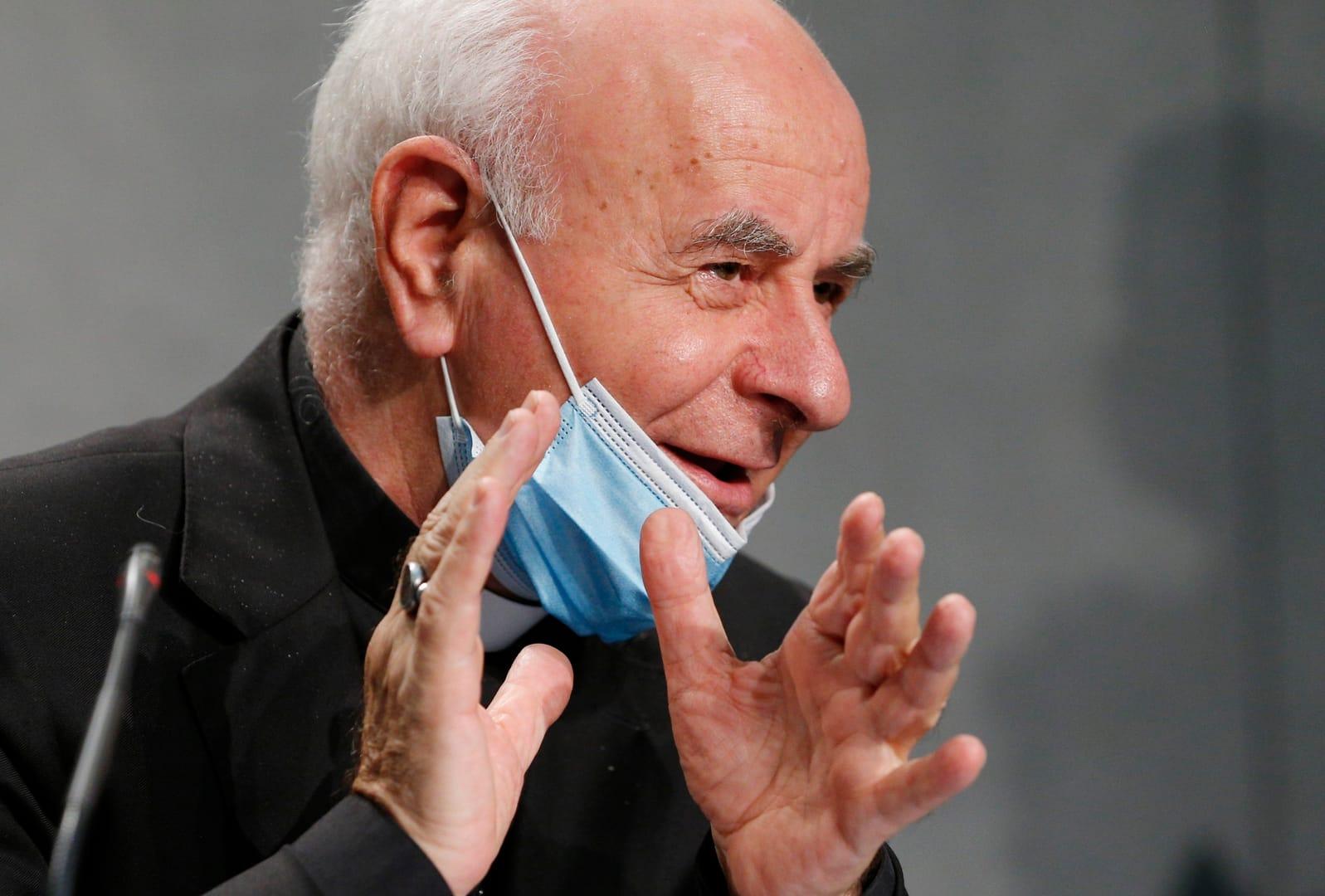ROME — The Vatican has reaffirmed its support of COVID-19 vaccines with both the head of the Pontifical Academy for Life and a Holy See communique reiterating Pope Francis’ insistence that getting inoculated is “an act of love.”
The Holy See issued its written communique Dec. 22 following the publication the same day of an executive summary by the Vatican’s COVID-19 Commission and a note by the Pontifical Academy for Life; both documents were dedicated to the impact of the COVID-19 pandemic on children.
At the documents’ presentation, Archbishop Vincenzo Paglia, president of the papal academy, told Catholic News Service that authorized COVID-19 vaccines present no ethical dilemma, while refusing them is irresponsible toward oneself and others.
Paglia said the church has long been very careful and attentive to the morality of vaccines using cell lines developed decades ago from the tissue of aborted fetuses. It has established that “there is no ethical problem” for the recipient and no cooperation with evil because of the “remoteness” of the original abortions.
“Rather, the problem is the inverse. The risk is the irresponsibility toward oneself and others” by refusing vaccination against a deadly disease, he said.
Also, all vaccines for adults and children, he explained, “must be safe, authorized and guaranteed” by the proper authorities.
Dr. Alberto Villani, an academy member and head of general pediatrics and infectious diseases at the Vatican-owned Bambino Gesù Pediatric Hospital in Rome, told CNS it also is important to remember the ethical dilemma caused by those who intentionally refuse vaccination against COVID-19 and fall seriously ill, requiring hospitalization.
This takes up limited spaces and equipment in hospital intensive care units, denying immediate or adequate care for others, he said.
Villani said it also was questionable when people argue that “only a few” people die or get seriously ill from COVID-19, as if there were “an ethical threshold” of an acceptable number of deaths when in reality each single life has value.
The Holy See statement comes one year after the Congregation for the Doctrine of the Faith published its “Note on the morality of using some anti-COVID-19 vaccines.” Therefore, the Vatican said, “it seemed opportune to reaffirm the favorable position of the Holy See toward vaccines.”
“The Holy Father has defined vaccination an ‘act of love’ seeing as how it aims to protect people against COVID-19,” the communique said. Pope Francis also has repeated the need for the international community to increase cooperation so that “everyone has quick access to vaccines, not as a matter of convenience, but of justice,” it added.
The statement comes as there is ongoing opposition to authorized COVID-19 vaccines and concerns about the morality of using vaccines that used — in either the development or testing phases — cell lines developed decades ago from the tissue of aborted fetuses.
The three vaccines approved for use in the U.S. — Pfizer-BioNTech, Moderna and Johnson & Johnson’s Janssen –- all rely on abortion-derived cell lines, the first two in testing and the Johnson & Johnson vaccine throughout the development, testing and production stages.
In a December 2020 document, the U.S. bishops reiterated Catholic teaching on morally compromised vaccines, noting their use can be justified amid urgent health crises, a lack of available alternatives and their remote connection with the abortions from which their cell lines originated.
The bishops’ document echoes the guidance issued by the Vatican’s doctrinal congregation, which said in its note Dec. 21, 2020, that “all vaccinations recognized as clinically safe and effective can be used in good conscience with the certain knowledge that the use of such vaccines does not constitute formal cooperation with the abortion.”
However, the doctrinal congregation emphasized that “the morally licit use of these types of vaccines, in the particular conditions that make it so, does not in itself constitute a legitimation, even indirect, of the practice of abortion, and necessarily assumes the opposition to this practice by those who make use of these vaccines.”
The congregation repeated the Vatican’s call on pharmaceutical companies and governmental agencies to produce, approve and distribute ethically acceptable vaccines, that is, without using morally compromised cell lines at all.
The doctrinal office also said that “vaccination is not, as a rule, a moral obligation and that, therefore, it must be voluntary.” But from an ethical point of view, “the morality of vaccination depends not only on the duty to protect one’s own health, but also on the duty to pursue the common good,” it added.














